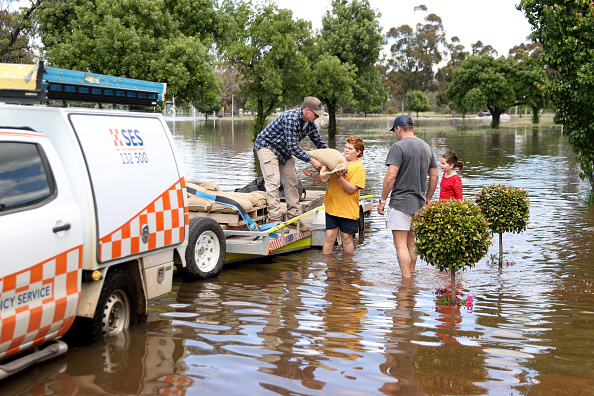Net zero won’t come cheap, but the impact of floods and heat will continue to cost us

Now that the clocks have turned back and a chill is in the air, households and businesses will be anxious about the prospect of rising bills.
Action to tackle this immediate crisis by the government has provided welcome immediate relief but policymakers – in the UK and across the globe – must seize the moment to support the longer-term transition of our economies away from fossil fuels.
The impact of Russia’s military aggression in Ukraine has underscored how the race to net zero is a geopolitical imperative as well as an economic and existential one.
Now that the Conference of the Parties, commonly known as Cop, has begun in Sharm El-Sheikh, Egypt, we have another opportunity to create a consensus to tackle the defining issue of our time: climate change.
In the year since Cop26 in Glasgow, we have endured record breaking temperatures here in the UK, mass flooding has devastated 33 million people in Pakistan, while the western United States has experienced severe droughts.
Our political leaders must push the global case for British leadership in the climate fight. The UK’s financial and professional services sector has a crucial role to play helping mobilise the private capital needed for the net zero transition.
Cop26 saw trillions of private capital committed to hitting net zero emissions by 2050, from more than 450 banks, insurers, and asset managers across 45 countries; underscoring the fact that financial competitiveness and sustainability are not diametrically opposed but are two sides of the same coin.
This remains as true now as it was twelve months ago. Through sustainable finance, we can deliver more investment into clean growth, and we can support credible decarbonisation of high-emitting assets and sectors.
In the UK alone, we need between £44bn and £97bn in private sector investment to meet our environmental commitments over the next decade. Globally, the International Renewable Energy Agency estimates that the investment required for the energy sector to transition is $5.7tn annually until 2030.
Unless we invest in and support emerging markets and developing countries, our global climate goals simply cannot be met.
It is therefore clear that we have an enormous challenge ahead. But in this challenge, we must also seek out and seize the significant opportunities before us.
The UK’s expertise on green finance is in global demand. London has maintained the top spot in green finance according to the latest Global Green Finance Index. In 2021, UK issuers raised nearly £27bn using green bonds – a near five-fold increase on the previous year.
The green finance market is growing, our talent pool of skills and expertise is growing, and our reputation as the place for green investment is growing.
So over the coming days at Cop27, I’ll not only be urging governments and policymakers to put past financial pledges into action, but I’ll also be championing London as the home of green finance that mobilises climate finance into clean growth opportunities globally.
And though each annual climate summit is tasked with the gravest challenge – protecting the only home that we have ever known – we should feel confident that the City can continue to be leaders in creating a more sustainable future.
